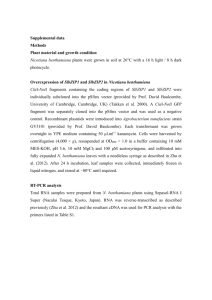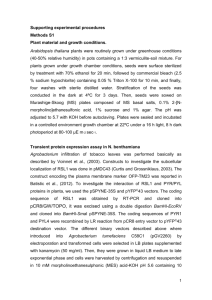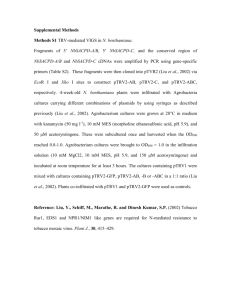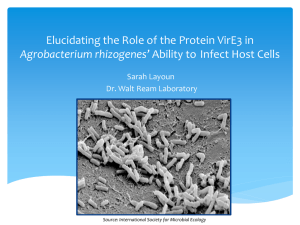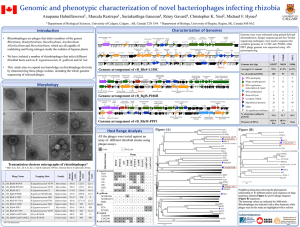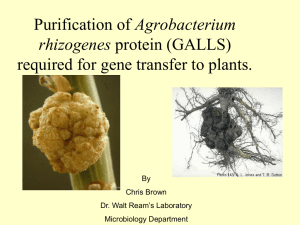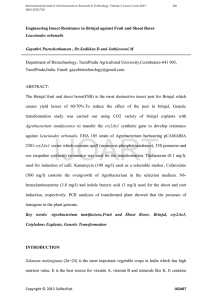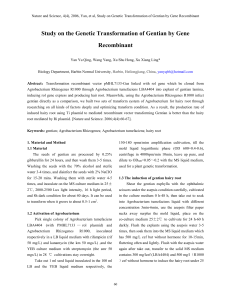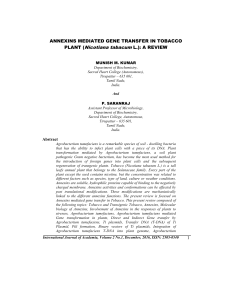NICOTIANA Sara C. Sukenik and Karen A. McDonald BENTHAMIANA
advertisement
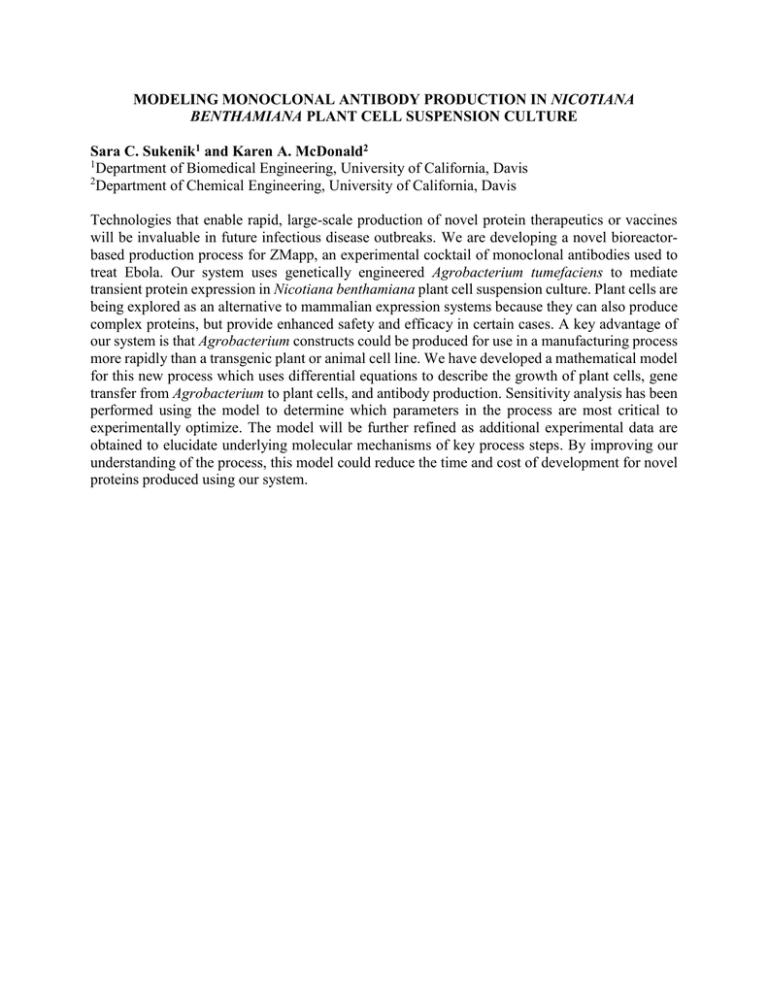
MODELING MONOCLONAL ANTIBODY PRODUCTION IN NICOTIANA BENTHAMIANA PLANT CELL SUSPENSION CULTURE Sara C. Sukenik1 and Karen A. McDonald2 1 Department of Biomedical Engineering, University of California, Davis 2 Department of Chemical Engineering, University of California, Davis Technologies that enable rapid, large-scale production of novel protein therapeutics or vaccines will be invaluable in future infectious disease outbreaks. We are developing a novel bioreactorbased production process for ZMapp, an experimental cocktail of monoclonal antibodies used to treat Ebola. Our system uses genetically engineered Agrobacterium tumefaciens to mediate transient protein expression in Nicotiana benthamiana plant cell suspension culture. Plant cells are being explored as an alternative to mammalian expression systems because they can also produce complex proteins, but provide enhanced safety and efficacy in certain cases. A key advantage of our system is that Agrobacterium constructs could be produced for use in a manufacturing process more rapidly than a transgenic plant or animal cell line. We have developed a mathematical model for this new process which uses differential equations to describe the growth of plant cells, gene transfer from Agrobacterium to plant cells, and antibody production. Sensitivity analysis has been performed using the model to determine which parameters in the process are most critical to experimentally optimize. The model will be further refined as additional experimental data are obtained to elucidate underlying molecular mechanisms of key process steps. By improving our understanding of the process, this model could reduce the time and cost of development for novel proteins produced using our system.
